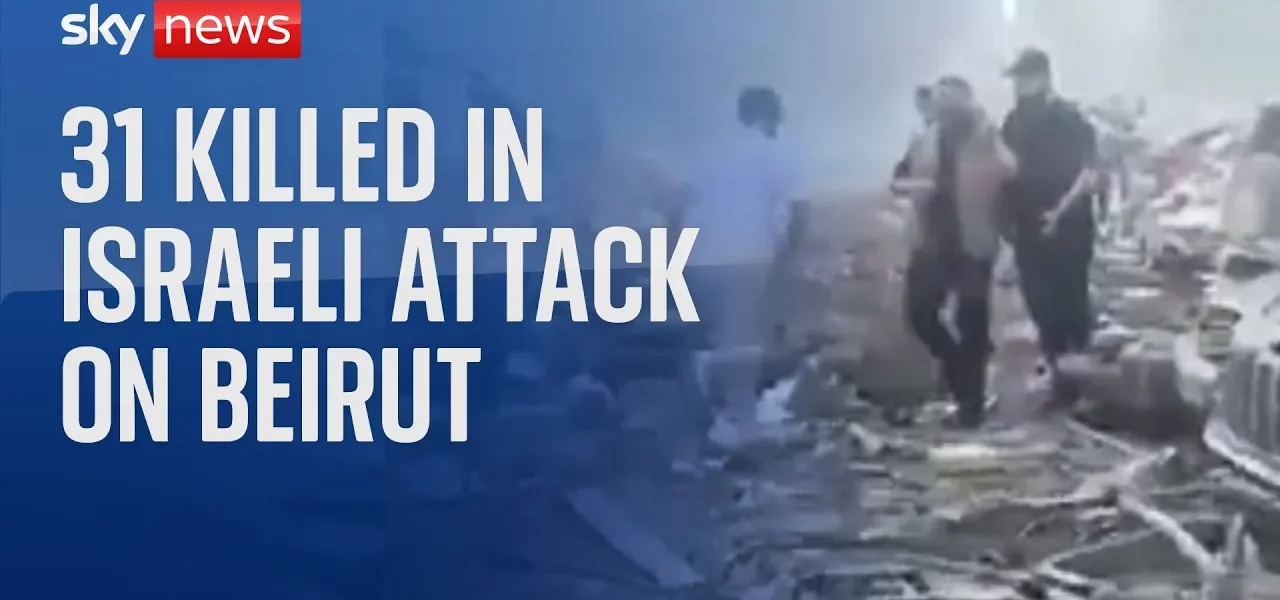Israeli Air Strike in Beirut: Implications for Hezbollah and Regional Conflict

In the wake of a devastating Israeli air strike in Beirut, Lebanon, the political and military ramifications are profound. This article delves into the recent events, the casualties involved, and the shifting dynamics of conflict between Israel and Hezbollah.
Introduction
On a tragic day in Beirut, an Israeli air strike resulted in significant loss of life and marked a critical point in the ongoing conflict between Israel and Hezbollah. The air strikes not only claimed the lives of several civilians but also took the lives of high-ranking Hezbollah commanders. This escalation of violence raises questions about the future of the region, the aims of Israeli military operations, and the response from Hezbollah and its allies. The situation is fluid, but understanding the details is essential for grasping the broader implications of this conflict.
Details of the Air Strike
The air strike in Beirut, which occurred in a residential area known as Dahia, has left a harrowing toll. According to reports from the Lebanese Health Minister, at least 31 people lost their lives, including three children and seven women. The attack specifically targeted two buildings where Hezbollah leaders were allegedly meeting.
Casualties and Impacts
- Total fatalities: 31
- Injured: 68, with many in critical condition
- Notable casualties included:
- Ahmed Wahhabi, a top commander overseeing military operations
- Ibrahim Akil, responsible for historic attacks on diplomatic locations
This attack marks a significant escalation, as it not only resulted in civilian casualties but also the deaths of high-ranking military figures within Hezbollah, which has been labeled as a “great leader” by the organization.
Hezbollah’s Response
In the aftermath of the air strike, Hezbollah confirmed the deaths of its commanders and has characterized the incident as a profound loss. The organization has expressed intentions to retaliate, raising concerns over an all-out war.
Statements from Hezbollah
- Hezbollah’s leadership described the deceased commanders as critical to their operations.
- The group vowed to continue their military actions against Israel in response to the attacks.
Potential for Escalation
There is an increasing fear that this incident could lead to broader military confrontations, with both sides gearing up for potential retaliation. The UN has expressed concern about the escalating violence and the humanitarian implications of this conflict.
Shifting Focus of Israeli Military Strategy
The Israeli government has indicated a shift in focus from operations in Gaza to targeting Hezbollah along its northern border. This strategic pivot is seen in the context of ongoing hostilities that have persisted since October, with both sides engaging in tit-for-tat exchanges of fire.
Official Statements from Israeli Leadership
Israeli Prime Minister Benjamin Netanyahu articulated that the nation’s goals are clear and that military actions are intended to weaken Hezbollah’s operational capabilities. This shift suggests a long-term strategy aimed at destabilizing Hezbollah in Lebanon.
Consequences for Regional Stability
The ongoing conflict has already led to significant displacement of populations within northern Israel, raising humanitarian concerns:
- Displacement of tens of thousands of Israeli citizens.
- Increased military readiness on both sides.
- Heightened international scrutiny and calls for peace negotiations.
Conclusion
The air strike in Beirut has not only resulted in tragic loss of life but has also escalated tensions between Israel and Hezbollah, with potential ramifications for the entire region. As both sides prepare for possible retaliatory actions, the international community watches closely, concerned about the risk of an all-out war. It is essential for diplomatic efforts to be prioritized to prevent further loss of life and to seek a resolution to the ongoing conflict.
For ongoing coverage and analyses of this evolving situation, stay tuned to our latest articles and updates.
“`




